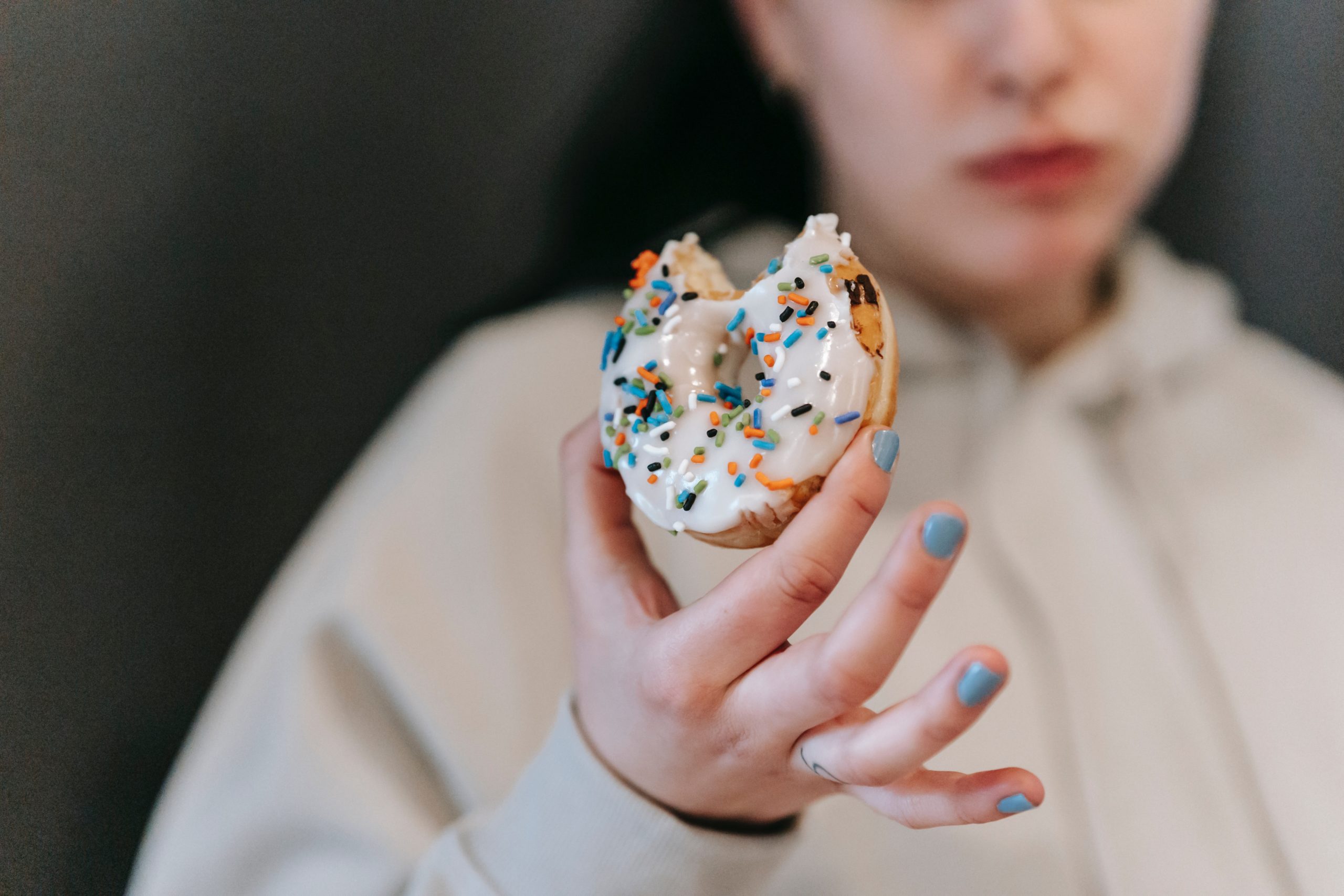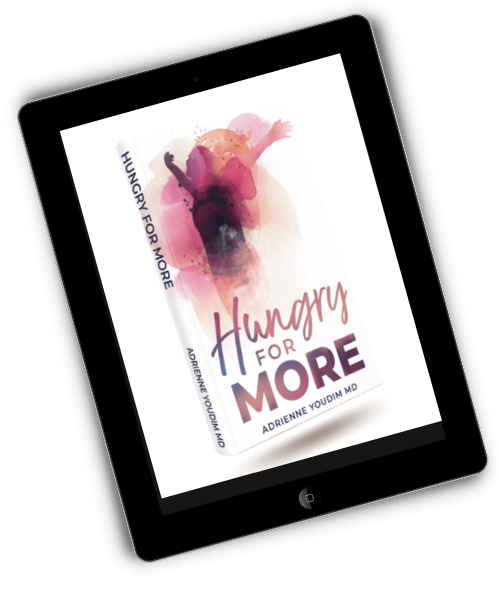Have you ever thought, “I’m addicted to food?”
This is what I frequently hear my patients say. And I can’t say it hasn’t crossed my own mind. But is food addiction really a thing? Many addiction experts don’t think so. And does labeling our experience as an addiction even matter? Whether our compulsive desire for palatable and habit forming foods fits the true definition of addiction might be irrelevant, if our experience is one of habitual out of control consumption, and the science behind addiction is insightful nonetheless.
Addiction, What is it Anyway?
The online webster dictionary defines addiction as
“ a compulsive, chronic, physiological or psychological need for a habit-forming substance, behavior, or activity having harmful physical, psychological, or social effects and typically causing well-defined symptoms (such as anxiety, irritability, tremors, or nausea) upon withdrawal or abstinence.”
Food may not be considered a drug given our reliance on it for survival, but there is something to be said about our desire to dig in over and over again into something despite our best judgment, despite feeling overly full or ill, despite the fact that in the long run when done repeatedly, it can cause disease. In the case of alcohol or cigarettes we can unequivocally call it a drug and thus see the addictive potential, but be it food, or alcohol, or over-sexing or over-texing, the mechanism of use is the same. Meaning that the thing that drives us to eat more, drink more, smoke more, sex more, scroll more, work more is the same. And understanding that drive is critical to changing our behavior. At least it was for me.
Dopamine 101
Most of you have heard about dopamine but here is a little neuroscience 101 just in case. Our neurons or brain cells speak to each other with chemical messengers called neurotransmitters which pass information from one neuron to another.
Dopamine is the neurotransmitter that promotes the feeling of reward and pleasure. It is also the signal that drives the feeling of desire and motivation. And in fact, science has shown that the motivation or the wanting aspect of dopamine appears to be more potent than the liking or pleasure aspect meaning that dopamine is more interested in getting us to want something rather than getting us to like it. So that the wanting or the chase is dopamine’s main concern. Seems like a set up for disaster already!
Evolution and Girl Scout Cookies
So why would god want us to be triggered to eat a whole sleeve of thin mints cookies (maybe I actually consumed both sleeves one of the many nights I pulled an all-nighter in med school). The dopamine/reward system was created to ensure our survival. We evolved to feel pleasure for the things that kept us alive, like food for sustenance or sex for procreation. This pathway evolved in a time of scarce resources and created motivation for humans to achieve what was necessary to survive.
However we live in a time of relative abundance where this type of motivation might be excessive and one in which this reward system has been manipulated (by food manufacturers, apps, technology) to make our environment more dopamine inducing and therefore more desirable. For example our food has been modified with more sugar, fat and salt to be more palatable and to trigger a stronger dopamine response. Again from an evolutionary perspective this makes sense because higher calorie foods would result in higher fat and energy for storage but in our present environment of excess this is not in our favor.
Another example is our smart phones and technology in general – apps have allowed for access to anything and everything we could want and have provided that access quickly giving us instant gratification. Netflix has allowed for a constant stream of entertainment without waiting minutes for commercials or weeks for another episode. Social media has offered the promise of connection, also a dopamine inducer, motivating us for likes and views. All these aspects of life have put us in an environment of quick reward and pleasure, greater consumption and dopamine excess.
Sex, Drugs and Rock n’ Roll
This becomes problematic because dopamine determines the addictive potential of the thing.The faster and greater the release of dopamine from the drug, the more the addictive potential of that drug.
As Dr. Anna Lembke describes in her book, Dopamine Nation,
chocolate increases dopamine release in the brain by approx 55%,
sex by 100%, nicotine by 150%, cocaine by 225%, and amphetamines 1000%. As she aptly describes, one hit of meth pipe is equal to10 orgasms. Now most of us are not smoking a pipe here but this is how dopamine can leverage the addictive potential of even say, chocolate.
Tolerance
Not only does dopamine drive our desire to consume more, the more we consume, the more resistant we become to the release of dopamine so that over time we need more chocolate/wine/scrolling to get the same emotional pay off. With repeated use the pleasure we receive from the food or drug becomes less while the desire and craving becomes stronger and longer and ultimately we need more of the drug of choice to achieve the same effect.
Dopamine also impacts other aspects of our brain. For example, dopamine stimulates the prefrontal cortex manipulating the thinking part of our brain and driving our executive function to consume. It also stimulates the nucleus accumbens which drives our motor functions. Dopamine stimulates the amygdala and hypothalamus, the part of our brain that deals with emotions and stores memories, which is why the smell of chicken soup or freshly baked chocolate chip cookies take us back to our childhood and drives our desire to eat the cookie. Did you get in the habit of hitting the pantry while you binged on Netflix these past two years? Do you now find yourself automatically heading to the pantry every night before you watch TV- yup that’s dopamine too.
Give me Pleasure, Not Pain
We also know that pleasure and pain are processed in the same regions of the brain and work in balance. When we engage in a pleasurable experience, we release dopamine. The more dopamine released the more pleasure we feel.
But our bodies seek homeostasis or equilibrium, so every time we experience pleasure our bodies try to achieve homeostasis by tipping the balance on the side of pain thereafter. Every pleasurable experience comes at a cost which is an equal experience of pain afterwards. You may recognize the crash after a sugar high or the depression that comes after the initial buzz of alcohol.
With prolonged use our capacity to experience pleasure goes down while our susceptibility to pain increases. This is best demonstrated in opioid use and addiction. With prolonged use of opioids- the pain reducing effect of opioid use goes down while the baseline pain goes up. In fact, prolonged opioid use shifts the pleasure/pain balance so that users have greater sensitivity to pain as compared to non-users while losing their sensitivity to the pain-relieving properties of the drug.
Dopamine Drain
Finally, addiction has shown to result in a deficit of baseline dopamine. Heavy prolonged use of high dopamine releasing substances results in a dopamine deficient state. One study scanned the brains of healthy individuals compared to people with addiction who stopped using their drug of choice 2 weeks prior to the MRI. In the absence of their drug, the addicted cohort revealed little to no dopamine on brain scans as compared to healthy controls suggesting that prolonged drug use and addiction suppressed the normal release of this pleasure inducing drug.
Now again, I know that many of us are merely addicted to girl scout cookies and cabernet, not opioids (although, I also know the tragedy of the opioid epidemic in our country right now) but can you see that even then and perhaps on a smaller scale, how our environment has manipulated this reward pathway to increase our consumption overall?
Still, We Are in the Driver’s Seat
The good news is that we are not beholden to dopamine.
If you feel like you have developed a consumption problem, be it with certain foods, wine, screens, social media, binge watching TV, consider a detox. Challenge yourself to one month or even 2 weeks away from your “drug.” Consider clearing out your pantry of the temptations or deleting your social media app or going dry. If it seems like you cannot avoid the thing completely, try to moderate by setting boundaries. Limit your use of screens to certain times of the day or limit alcohol intake to the weekends. Now be aware that certains drugs including alcohol, when used in excess or a prolonged period of time, can result in serious should you stop abruptly, so please seek guidance of a physician or trained health professional before going cold turkey.
But know that even in the absence of true addiction, you may start to feel irritable by not getting your fix. Your irritability might be a result of the relative dopamine deficit and be patient as your brain and body recalibrate.
Swap your Drug of Choice
Next take advantage of healthy dopamine yielding strategies. Here are some ways of producing dopamine, naturally.
- ☀ Sunshine -make time to be outdoors daily.
- 🏃♀Physical activity- move your body, also daily.
- 🤝Connection- make time for friends, family or even your pet, all will result in a dopamine surge.
- 🧘♀Mediate- meditation boosts dopamine levels.
- 🎵Music- so does music…
- 😴Sleep- sleep deprivation can reduce dopamine sensitivity, so make sleep quality and quantity a priority.
- 🍎Eat well- higher protein diets may boost dopamine as the amino acid tyrosine and phenylalanine can be converted to dopamine in the body. Other foods such as salmon, greens and probiotic containing kefir and yogurt will also trigger dopamine release.
Bottom line, we live in an abundant, easy access, dopamine excess world. It requires mindfulness to moderate our consumption whatever that consumption may be, but with intention we can manage the addictive potential of our environment and boost feelings of pleasure and reward naturally.
If you loved what you read and are Hungry for More, check out my new book that explores the stories and science behind our physical, emotional and spiritual hungers.
Wishing you a happy and healthy week!
xx,
Dr. Adrienne


